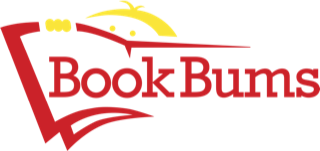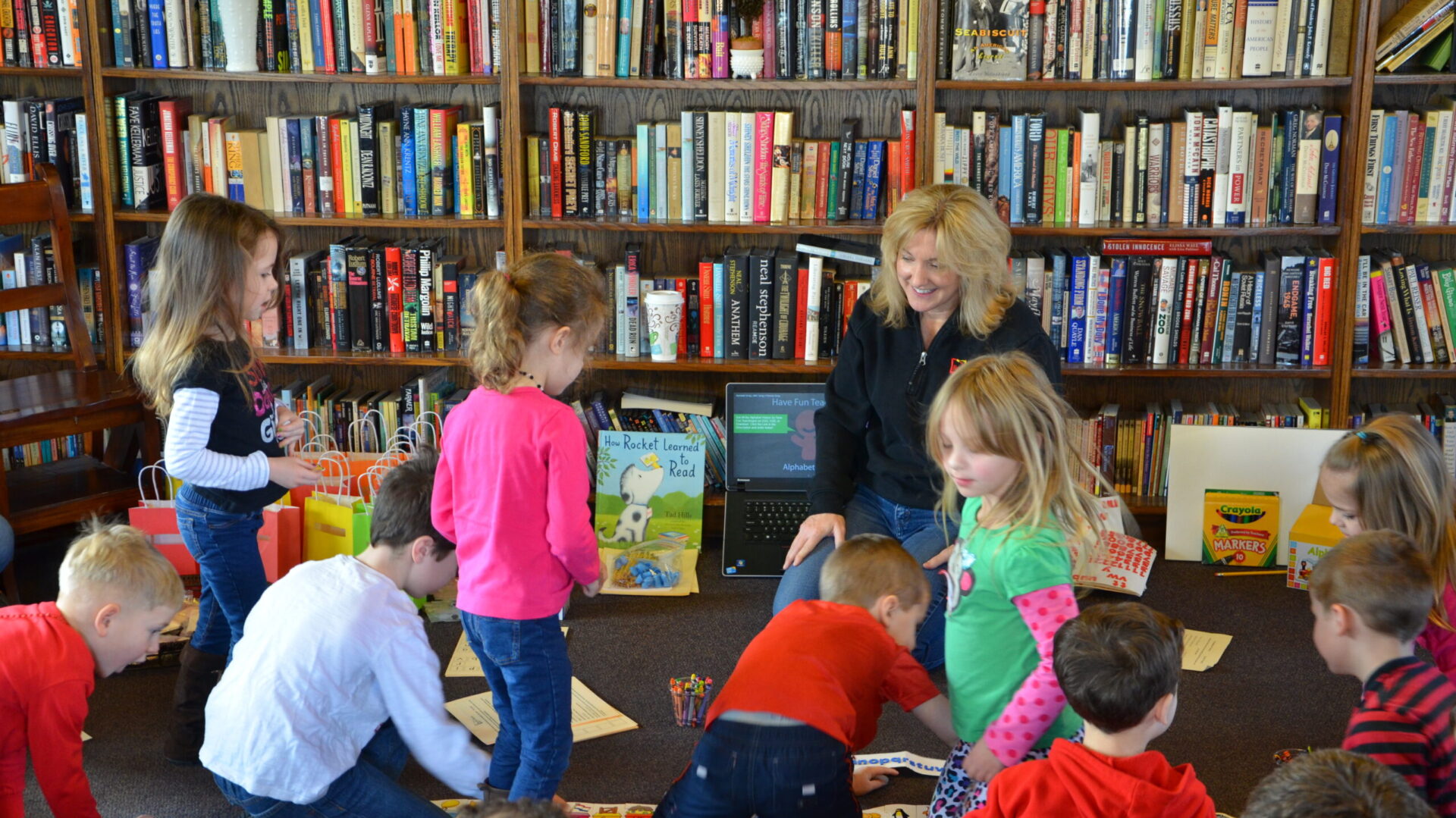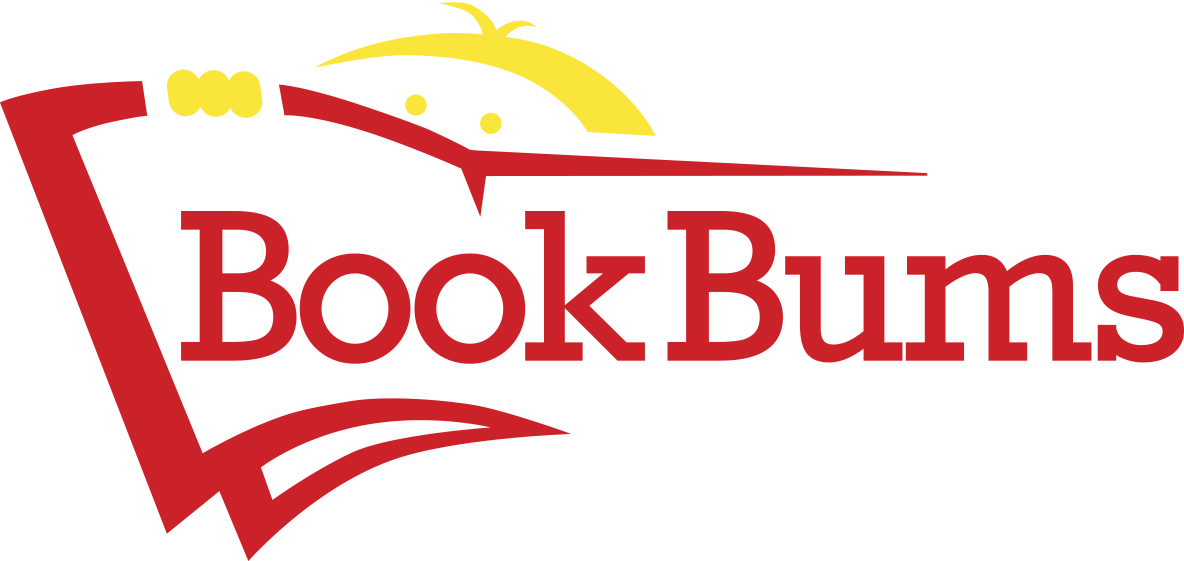
Hello Book Bums families!
We are all about words this week - choosing them wisely, learning new ones, knowing how to spell the words we know, and recognizing words in other languages. We hope the words in our newsletter add some fun and enrichment to your day.
"Words are, in my not so humble opinion, our most inexhaustible source of magic." - Albus Dumbledore in Harry Potter and the Deathly Hallows
Bookbums.com is an Amazon Associate; We earn from qualifying purchases. This means that if you click on a link to Amazon.com and make a purchase, We may earn a small commission at no extra cost to you. We do recommend the products. Feel free to find them by other means.
Word of the Week
anachronism (uh-nak-ruh-niz-uhm) noun/person, place, or thing - something that is out of its proper time
The story is full of anachronisms like the knight who wears a wristwatch.
Literary Calendar
• March 25 is National Tolkien Reading Day.
• Lord of the Rings fans may know that this is the date on which the Ring is destroyed and Frodo's quest is complete.
• Tolkien is famous for the worlds and entire languages he created in his fantasy novels.
Tips for Families
Tips for Families
How to Survive Until the End of the School Year
Well, we’re starting to see the indicators. Warmer temps, longer days, and those new sports schedules are so good at getting us longing for summertime long before it actually IS summertime. Here are some tips to keep your family rocking this school year until the very last day.
1. Keep schedules. It’s sooo much easier to just let up a little bit here and there . . .until you’re paying the price and deeply regretting those late nights and last-minute backpack checks.
2. Ease anxiety. Your kids are not going to gain a lot of academic ground in the next few weeks. If your child is behind, make a plan for the summer to get your child on track for the fall. Shifting into overdrive, now, is not going to work. Let’s face it, most everyone’s exhausted.
3. Strive to have at least a few family meals each week where you sit down and talk to one another. Keep meals simple. It’s the time that matters most.
4. Find a way to appreciate your kids’ teachers. They’ve had a very difficult year, too. It means so much to them to know that their efforts have been seen. Even when things get a little crazy, be sure to speak about your kids’ teachers with kindness. Yes. Even when the things they ask you to do things that add to your stress. (E.g. Let’s all wear tie-dye shirts tomorrow! Let’s all pack our lunches tomorrow and eat in the courtyard! For homework, bring in 10 things from nature that show spring is here!) I’ll stop, here, so they don’t get any bright ideas! J
5. Plan now for the school field day or it’ll creep up on you.
6. Do a countdown, but make it a celebration of a good year, not a “Thank goodness this year is almost over.” Our attitudes, especially the negative ones, spill over and into our children if we’re not careful.
7. Think, now, about the friends your kids might want to keep in touch with over the summer and exchange contact information so you can connect after school’s out.
8. Frame any end-of-the-year testing as an opportunity to show off. No pressure. Encourage your kids to relax, take their time, and do their very best. When it gets a little tough, remind them to smile, take a deep breath, and do what it takes so they can be proud of themselves. That’s all we can ask.
9. Homework before play? Not today. Agree to allow your kids to play outside for a while, but remind them that any assignments will need to be completed before/after dinner. It might even be fun to try doing homework outside for a change.
10. Across the next few weeks, ask your kids to name some kids from their class who’ve really impressed them this year. Ask them to give details about why/how. Ask: Who was a great friend to you this year? Who was a great scholar—not just making good grades—but someone who always did his or her best? Who was almost always kind? This is a great time to reflect. You could also invite your kids to make goals for the kinds of students they want to be next year. How could they improve? What would they like to do differently? Who would say that they are great scholars? Who would say that they were almost always kind?
You’re still the parent, and that has never been an easy job, but hopefully these tips help you to enjoy being the great parent you are—even when schedules are crazy, kids are antsy, and you’re just plain tired. You can do this!

From our Bookshelves
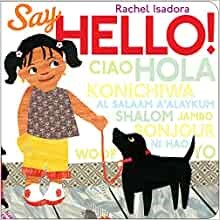
This book is delightful for young ones, ages 3-6 or so, though older kids who are fascinated with learning to say words in other languages would like it, too. The story is about a young girl walking through her diverse neighborhood and greeting the people she sees by saying hello in her friends’ first languages. Of course, her dog is multilingual. (Woof!)
The hellos shared in Say Hello! are spoken in Arabic, French, Spanish, Italian, Swahili, Japanese, Mandarin, and Hebrew. If you wanted to make the most of this book, you could also experiment by tasting some foods that are generally associated with each culture represented. How wonderful it could be to visit some new restaurants in our area! And who doesn’t love a trip to Jungle Jim’s?
Below, you’ll find a link to a video of the book being read aloud. In that video, you do get to hear the proper pronunciation of the hellos, but you don’t get to fully experience the magic of the gorgeous illustrations— which most certainly would inspire some creative experimentation with collage. If you have some scrapbooking paper, magazines, scissors, and glue, your kids would love to make some beautiful art one rainy, spring day. Enjoy!
Link - Say Hello! by Rachel Isadora
Tips for Readers and Writers
Children’s books that feature other languages may not make your kids fluent bilinguals, but they are great for expanding kids’ cultural awareness and enticing them to experiment with new words.
When reading, it can be good to note that many languages are code-based, like English. These languages are often referred to as transparent languages. That means that symbols represent the sounds, and once we learn the sounds the symbols represent, we can decode most words. Of course, that doesn’t ensure we understand what we’re reading, but we can say the words.
Though people often lament that our language is extraordinarily confusing, truly, it is fairly transparent. But here’s something kind of cool. LOTS of words, across many languages, are cognates. Cognates are words having the same linguistic derivation as those from other languages. That means that some words are spelled exactly the same or very nearly the same in one language as another. That also means, we can recognize words in other languages, even if we don’t speak the language. Of course, the pronunciation may be different, but in text, we can recognize them. Here are some examples:
In Spanish, the words metro, hospital, escape, lava, visa, sociable, funeral, original, cereal, horrible, and motor (along with many others) are cognates.
In French, the words attention, motion, question, animal, final, adorable, table, horrible, impossible, and important (along with many others) fall into that same category.
How about some words in Italian? Action, passion, animal, conversation, adorable, table, station, importance, restaurant, correct, patience (along with many others) have the same or nearly the same spellings and meanings as the words in English.
When it comes to teaching kids, just notice what you see and hear, together. Typically, kids love experimenting with accents, so you can try that, too.
Wordology Workshop
• Our word of the week, anachronism, features the Greek root chron, which means time.
• Take a look at these other chron words and think about how they are all related to time: chronological, chronometer, synchronous, chronicle, and diachronic.
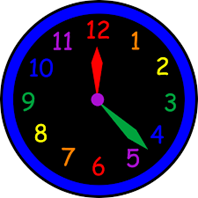
Practical Grammar
Have you heard your friends on social media say, “I was today-years-old when I learned . . . “?
Well, I’ve got one for you.
Think of some words that end with the sound /us/. How about . . .
cactus, gracious, spacious, sinus, callus, bus, marvelous, fungus, delicious, circus, venomous, mischievous*
Okay, look at the words spelled with o-u-s. They’re all adjectives.
Now, look at the words spelled with just u-s. They’re all nouns.
It works . . . Every. Single. Time.
So, when spelling, if you’re not sure whether to use an o-u-s or just a u-s, just ask yourself if it’s a thing or a describing word. When you know that, you’ll know how to spell the word correctly!
I bet you were today-years-old when you learned the foolproof way to determine the accurate spellings of words ending with the sound /us/. J
*BONUS
Mischievous is pronounced mis-chiv-us. It has three syllables.
It’s never pronounced mis-chee-vee-us. That’s a mispronunciation.
If you know someone who would benefit from our newsletter or tutoring at Book Bums, please share this email with them! Thank you.
Copyright © 2024 Book Bums, All rights reserved
Our mailing address is:
7967 Cincinnati-Dayton Road Suite L
West Chester, OH 45069
